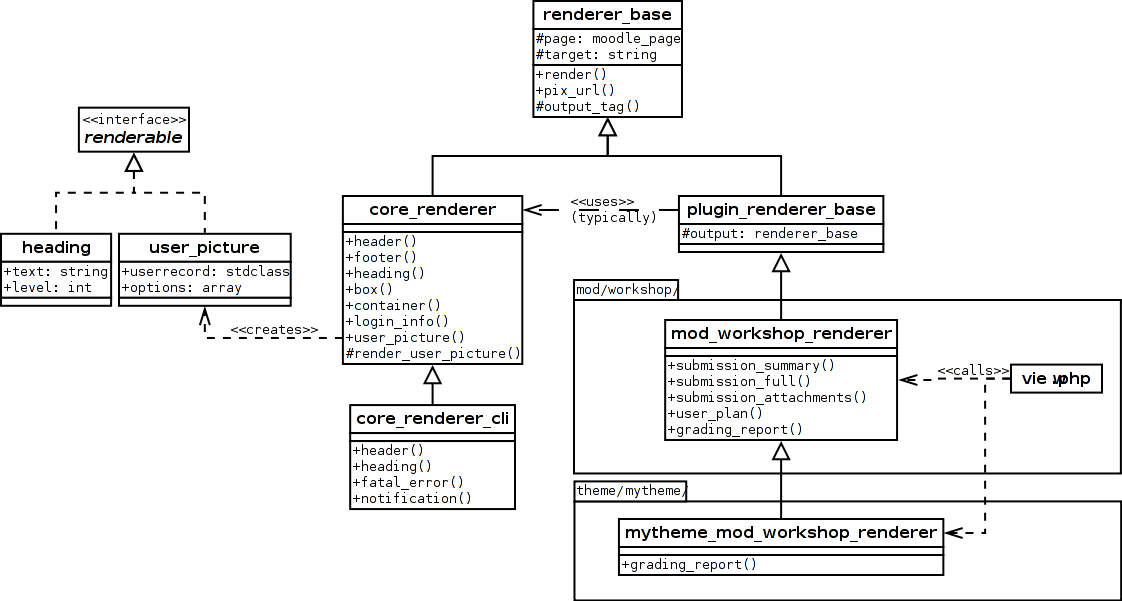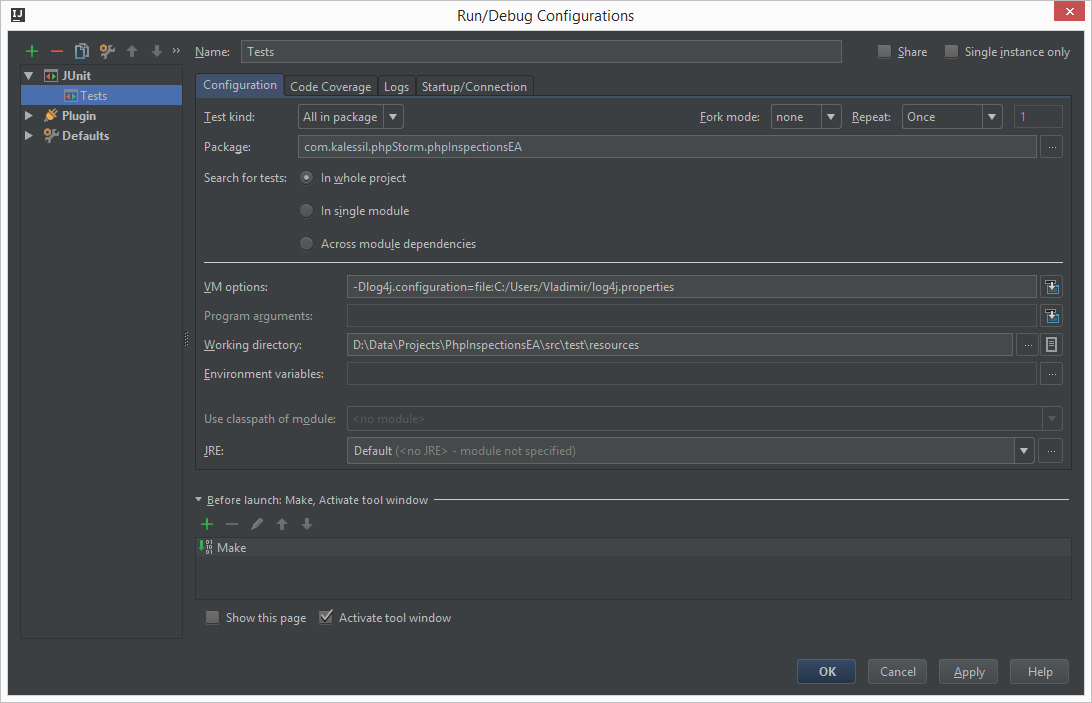The power of Open Source. @tigusigalpa has committed a first pass at adding mobile support to the #Moodle Questionnaire plug-in! Getting closer.
Source: Moodle Mobile 3.5 Support · tigusigalpa/moodle-mod_questionnaire@467a15c
The power of Open Source. @tigusigalpa has committed a first pass at adding mobile support to the #Moodle Questionnaire plug-in! Getting closer.
Source: Moodle Mobile 3.5 Support · tigusigalpa/moodle-mod_questionnaire@467a15c
"It is essential to support such thing likes event observers in any framework. In this post, I will show how to defined your observers in Moodle."
Source: Event Observers in Moodle
 One way to customize specific page in your theme is to override a renderer. This post will show you an example of how to do this.
One way to customize specific page in your theme is to override a renderer. This post will show you an example of how to do this.
Source: Overriding a Renderer
 This plugin is a Static Code Analysis tool for PHP (aka inspections in JetBrains products).
This plugin is a Static Code Analysis tool for PHP (aka inspections in JetBrains products).
It covers:
– architecture related issues (e.g. design pattern violations)
– weak types control and possible code construct simplifications
– performance issues
– non-optimal, duplicate and suspicious "if" conditions
– validation of magic methods usage
– regular expressions
– validation of exception handling workflow
– compatibility issues
– variety of time-consuming bugs
– PhpUnit API usage
– security issues
מקור: Php Inspections (EA Extended) :: JetBrains Plugin Repository
If you are interested in Moodle development, but do not have a background in development, experience with php, and experience in development environments, then this MoodleBites Introduction to Development is for you ! It will give you a gentle introduction to Moodle development, and provide a good grounding should you wish to progress to the full MoodleBites for Developers course at a later time.
Because this course is quite specialist, it runs just twice each year (numbers are limited, so please register in plenty of time):
This course is 8 weeks in duration, asynchronous, and completely online. Each week contains approximately 2-4 hours work, although this varies depending on your experience with Moodle and development in general, and how much extension work you wish to complete
מקור: HRDNZ MoodleBites: MoodleBites Introduction to Development
Richard Pilbery is not a professional software developer. By day he is a professional paramedic and lecturer. However, he also is like many Moodlers out there likes to dabble with technology, speci…
We’ve featured quite of bit of Gareth Barnard’s work here on MoodleNews. And, for good reason, Gareth is not only a rock star developer, he also has that rare knack of being able to exp…
As agile software has got more accepted and popular, it’s also been subject to a fair bit of misunderstanding. This talk focuses on the essence of agile software development, adaptive planning and people-orientation. Following this, a brief summary of the Agile Fluency model, which describes the typical path people follow as they learn and apply agile software development, is given.
3 September 2014: CodeRunner: authentic e-assessment for computer programming
Presenter: Richard Lobb, University of Canterbury, New Zealand
Hosted by Dr Mathew Hillier, University of Queensland, Australia starting 07:00AM UST/GMT. Duration 54 Minutes.
This session explored the features of CodeRunner; a Moodle question type in which student submitted program code is automatically evaluated against a range of test criteria and a grade assigned.
In introductory programming courses the question might be as simple as "Write a Python function sqrx that returns its parameter squared" however more advanced exercises can also be handled, such as "Modify the compiler discussed in lectures to handle the following language extensions". The submission is graded by running a series of tests on the submitted code within a sandbox, comparing the output with the expected output. Students receive immediate feedback and are able to resubmit for a small penalty. It is also possible to process the responses to questions in which the student answer is not program code at all. Instead the question type can be used to accept any text as a response which can then be assessed against a set of test criteria defined by the instructor in the form of program code. Coderunner is used at the University of Canterbury for laboratories, assignments and mid-course tests in several courses and is to be used in a final exam for the first time this year. The talk reported on experiences with CodeRunner in several courses and demonstrated the authoring of questions and the range of different questions that can be asked.
In computer science studies and others of technology profiles, there are subjects that use the programming assignments as an important educational tool.
The programming assignments of the early courses can present particular difficulties for the student and require frequent monitoring by the teacher. Often, until the work is assessed, students don't know if it is correct or not. This mode of operation meets the evaluative aspect, but does not provide the student to learn from their mistakes, which lost a significant part of the learning potential associated with the making of an assignment. More over, the evaluation may require considerable time and effort by the teacher due to the number of students, the number of submits required and their complexity.
The availability of a teaching tool to facilitate monitoring and personalized guidance in a continuous learning process allows to reduce the initial difficulties faced by the student. For teachers, the possibility of automating much of the assessment allows them to perform other productive tasks.VPL is a #programming #assignment management system, #Moodle integrable, that lets edit and execute programs and enable the automatic and continuous assessment.